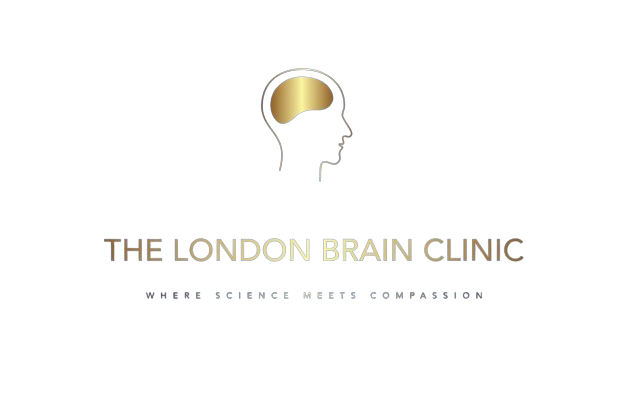It is now well-known in the scientific literature that a high percentage of people who were infected with Covid-19 are experiencing cognitive difficulties.
‘Brain fog’, a medical term used to describe a wide range of symptoms including difficulties concentrating, feeling confused, and thinking more slowly than usual, is also often experienced in people recovering from Covid-19. Together with anxiety, depression, sleep problems, and physical fatigue, this cognitive impairment contributes substantially to the “long Covid” symptomatology.
Whilst initially it’s been postulated that cognitive difficulties are related to mental and physical fatigue, recent studies have shown how fatigue and cognitive impairment are two common, but distinct sequelae of Covid-19 which might be due to separate causing mechanisms (Hartung et al., 2022). In their study, Hartung and colleagues demonstrated that on average 9 months after infection, 19% of patients have clinically significant levels of fatigue, compared to the 8% of people reporting fatigued in the control group. Female patients of younger age and a history of depression were more likely to experience clinically relevant fatigue. Moreover, patients who had altered consciousness during the infection, dizziness, and myalgia (that is, muscle aches and pain), were also reporting more long-term fatigue compared to patients who did not have the same symptoms during the infection. Cognitive impairment, on the other side, was more frequent in male patients, with lower education and a history of neuropsychiatric disease. Interestingly, levels of fatigue and levels of cognitive impairment were not associated, indicating that the two conditions might be due to different causes (Hartung et al., 2022).
What cognitive functions are usually impaired following infection with Covid-19?
Mostly, patients report deficits in attention, executive functioning, language, processing speed, and memory (Tavares-Júnior et al 2022). Executive functions mental processes which allow us to plan, focus our attention, remember, and multitask.
Executive functions are a set of cognitive processes that enable us to plan, prioritize, start, and sustain tasks and activities. They allow us to control our behavior, thoughts, and emotions and help us regulate our actions in order to achieve our goals. Some examples of executive functions include working memory, flexibility, inhibitory control, and problem-solving.
In real-world situations, executive functions can be seen in everyday activities such as:
- Prioritizing and managing time effectively, such as making a to-do list and completing tasks in a specific order
- Inhibitory control, like resisting the urge to procrastinate and staying focused on a task
- Flexibility in thinking, such as adapting to changes in a plan or finding alternative solutions to a problem
- Working memory, such as keeping important information in mind while performing a complex task.
What are the possible causes of cognitive difficulties following Covid-19?
The exact cause of these difficulties is not yet clear, but it is believed to be due to a combination of factors. One possible explanation is that the virus causes inflammation in the brain, leading to changes in cognitive function. Another possibility is that Covid-19 can lead to oxygen deprivation, which can cause injury to the brain and affect cognitive abilities.
There is also evidence that the virus can directly affect the brain and nervous system. For example, researchers have found the virus in the brains of deceased Covid-19 patients, suggesting that it may be able to cross the blood-brain barrier and cause neurological symptoms. Some researchers found that Covid-19 patients, relative to controls, evidenced neuroanatomical changes associated with limbic and olfactory cortical systems and a greater reduction in global brain size (Douaud et al., 2022).
What can you do if you experience cognitive difficulties following a covid-19 infection?
1. Talk to your GP
2. Get referred for a Neuropsychological assessment
3. Ask for psychological support
3. Exercise
4. Have a healthy diet
5. Rest and give your body more time to recover
Psychological support for cognitive difficulties can refer to a variety of therapeutic interventions aimed at improving mental processes such as memory, attention, and problem-solving skills. Psychological support can involve cognitive-behavioral therapy, which helps individuals identify and change negative thought patterns and behaviors that contribute to their difficulties. Another approach is cognitive rehabilitation therapy, which uses specific techniques and activities to improve specific cognitive skills.
Medication management can also play a role in treating cognitive difficulties, and a psychologist can work with a patient and their physician to determine if this is a necessary part of their treatment plan.
It’s important to note that psychological support for cognitive difficulties following Covid 19 infection is most effective when it is part of a comprehensive treatment plan that includes psychological therapy, cognitive assessment, and support from friends and family. In addition, maintaining a healthy lifestyle through regular exercise, a balanced diet, and getting adequate sleep can help improve cognitive functioning.
References:
Douaud G., Lee S., Alfaro-Almagro F., Arthofer C., Wang C., McCarthy P., Lange F., Andersson J.L.R., Griffanti L., Duff E., et al. SARS-CoV-2 is associated with changes in brain structure in UK Biobank. Nature. 2022:1–16. doi: 10.1038/s41586-022-04569-5.
Hartung, Tim J., et al. “Fatigue and cognitive impairment after COVID-19: A prospective multicentre study.” EClinicalMedicine 53 (2022): 101651.
Tavares-Júnior JWL, de Souza ACC, Borges JWP, Oliveira DN, Siqueira-Neto JI, Sobreira-Neto MA, Braga-Neto P. COVID-19 associated cognitive impairment: A systematic review. Cortex. 2022 Jul;152:77-97. doi: 10.1016/j.cortex.2022.04.006. Epub 2022 Apr 18. PMID: 35537236; PMCID: PMC9014565.
Braga, L.W. et al. ‘Neuropsychological Manifestations of Long COVID in Hospitalized and Non-hospitalized Brazilian Patients’. 1 Jan. 2022 : 391 – 400.

